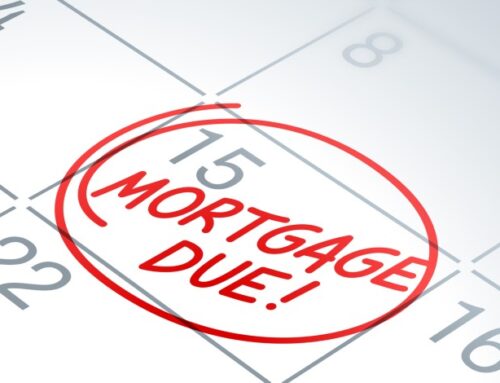Since buying a home is typically one of the biggest purchases you can make, the ability to negotiate effectively could save you a lot of money. A strong negotiation can also help you get into your dream home, even if its original sales price didn’t fit your budget. A good real estate agent will advocate for you to help you find a home that works for your finances and lifestyle.
A home negotiation can be one of the most important near-final steps to getting the home of your dreams. Keep reading to learn how to negotiate house price as a buyer to increase the likelihood of purchasing the home you want.
When’s The Appropriate Time To Negotiate?
You can test the waters of negotiation before making your first home purchase offer. For example, your real estate agent can research how willing the seller would be to negotiate, considering factors like how long the home has been on the market and how motivated the seller is to move on from the property.
Depending on the market conditions and the unique factors surrounding the home, making a lower purchase offer may make sense first. From there, the seller may make a counter proposal with a new, lower price than they initially offered. Or, they might accept your offer.
It’s also a smart idea to get an inspection and, potentially, an appraisal of the home before you enter negotiations. You can use any home defects or issues, as well as the appraisal amount, to help you justify your offer. Negotiating price after home inspection potentially offers additional leverage. You could work out a way for the seller to repair problems before you move in, saving you even more.
How To Negotiate In A Buyer’s Market
A buyer’s market typically means buyers have more of an advantage in negotiating since there are fewer homebuyers than houses available on the market. In other words, supply exceeds demand. This means home sellers are more likely to make concessions and potentially accept a lower offer or worse terms than in a seller’s market.
In a buyer’s market, you have the upper hand. In addition to offering a lower price, you may be able to get the seller to agree to terms that are more favorable for you. This includes negotiating anything related to closing the home sale, including the closing date, who pays for any repairs, home warranty terms and closing costs.
Your real estate agent will be able to gauge what’s common and acceptable when you close on your home. Ask them for guidance on how to get better terms for the homebuying components that matter to you.
How To Negotiate In A Seller’s Market
Conversely, in a seller’s market, less inventory is available in a more crowded homebuyer market. That means home prices will generally be higher compared to what they’d be in a buyer’s market. There’s also typically more competition and less room to negotiate. Home prices could be increased on single homes when more than one buyer makes an offer.
In a seller’s market, homes may be sold more quickly. If you fall in love with a home, you’ll want to make a firm offer quickly. You can consider adding an escalation clause to your offer, which means if another homebuyer makes an offer on the same house, you’re willing to increase your offer to a certain price. An escalation clause may propose incremental price increases that align with other purchase offers.
An escalation clause can be helpful because it keeps a buyer in competition up to a certain amount. It also limits how much a buyer is willing to pay, which protects them from overextending their finances to secure a home purchase.
There is a risk to an escalation clause, however. A seller has information on how much a buyer is willing to pay. That means they may come back to the buyer with a counteroffer, even if no other buyers are in competition. That can drive the price of a home up unintentionally, but it can still help a buyer secure the home they want.
5 Negotiation Strategies To Use As A Buyer
Even in a seller’s market, there are still ways you can protect yourself and your purchase power as a homebuyer. Use the following tips as the best way to negotiate house price on a home you want.
1. Consult the data
Data is your friend when negotiating a home price. Knowing how much homes are typically selling for in a given area can give you a better idea of how much home you can afford in today’s market. It also helps you make a reasonable offer that makes sense to the seller.
Work with your real estate agent to find what comparable homes in the same vicinity are selling for. The “comps” can help give you and your real estate agent leverage if a seller asks for an unreasonably high amount.
Remember that real estate agents have access to a much more robust data set than doing an online ZIP code search in a public real estate market. They can consult with the multiple listing service (MLS) and use homebuying trends to help you make a more informed, data-driven offer.
Also, data from an inspection and appraisal can help you determine what you think is a fair value for the home. Looking at a home’s actual value, based on its state, can also give you more power in a negotiation.
2. Gather all the information you can
In addition to general data regarding homes around the same area, it’s helpful to learn as much as you can about the seller’s motivations and the history of their home and selling process. For example, they may have tried to sell the home unsuccessfully in the past. Or, a previous offer may have fallen through for some reason. Knowing the details behind events like these could give you and your real estate agent leverage in negotiation.
Your real estate agent should be able to do research that evaluates how motivated the seller is, what the competition looks like in terms of incoming offers and any information that could affect the timing of the sale. For example, the owner may be looking to get out as quickly as possible due to a distressful situation, or they may be willing to stay on the market as long as it takes to get their desired sales price. These details can influence how you approach the offer.
3. Know your final number before you offer
Buying a home can be an emotional event. In addition to falling in love with a home and its possibilities for your and your family’s future, emotions can also affect the negotiating process.
For example, if multiple offers are made on your desired home, you may be tempted to keep raising your offer to keep up and “win” the home. Each time you increase your offer, you may be closer to getting the home. But you could also compromise your budget in the process.
That’s why it’s important to be realistic about what you can afford and know your “final number” before you make an offer. This is why an escalation clause could protect you since you state outright how high you’re willing to offer.
Even if you don’t include an escalation clause, know the maximum amount you’re willing to offer if the seller makes a counteroffer. Communicate that to your real estate agent, so you can move on to a different property if it doesn’t work out.
4. Consider all options
Depending on the market, you may be able to negotiate coverage for other expenses. For example, in a buyer’s market, you could ask for closing costs assistance or for the seller to make repairs before you move in. Anything that’s an expense could land on the negotiation table.
For example, seller concessions might include the seller agreeing to pay expenses like property taxes, title insurance, loan origination fees, inspection fees and an appraisal fee. Or, you may have fallen in love with the home’s furniture and want to add that to the purchase agreement.
Your time is also valuable. Consider what things like a fast closing or quick move-in date mean to you and your family. Those details could also impact the trajectory of your negotiations.
5. Find a real estate agent you can trust
Your real estate agent can help you handle most of the negotiation process. It’s helpful to find a real estate agent who’s familiar with the local market your target homes are in and who you can trust to get you the best deal.
Ask friends and family members for recommendations if you need to find an agent. If you’re new to an area, consult with a few agents to compare your options before committing to working with one.
Be open, honest and communicative about your financial state and what you want from a home. The more information your agent has about what works for you, the better they can advocate for you during the negotiation process.
Learn More About The Homebuying Process
Buying a home can be an exciting and complex process, especially for the first time. With some preparation and by consulting with an expert real estate agent, you can be assured you’re in good hands during the homebuying process. Since many home sellers price their homes with the expectation of negotiating, it’s helpful to consider all your options so you can lower your overall purchase price and closing costs.
Interested in learning more about the homebuying process? Check out some of our recent articles below.
- Arizona First-Time Homebuyer Programs: First-time homebuyer and down payment assistance programs aim to make homeownership a reality. Learn more about first-time homebuyer programs in Arizona.
- Homebuyers Guide: Private Mortgage Insurance (PMI): Private mortgage insurance may be enacted if you have less than a 20% down payment on a conventional loan. Learn more about PMI and how it affects you.
- Guide to Arizona Homeowners Insurance: Homeowners insurance in Arizona is essential to protect your property. Learn more about the average cost of homeowners insurance in Arizona and much more.




